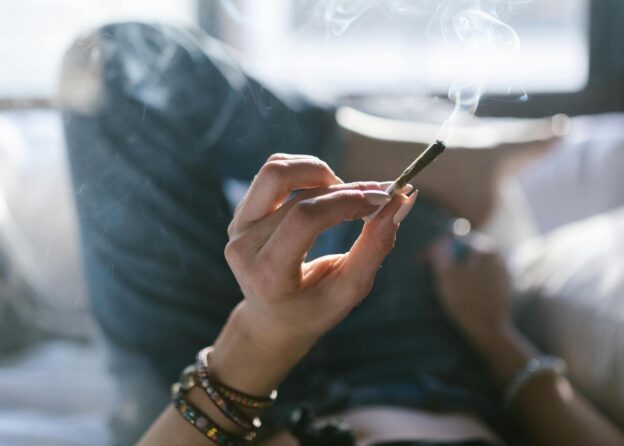Cannabis, a widely used recreational drug, is often associated with a sense of relaxation and euphoria. However, for some people involved in cannabis use, especially those already dealing with mental health problems, it can lead to a worrying disease known as cannabis-induced psychosis.
This intersection of substance use and mental health concerns can have severe consequences, making it crucial to delve into the complexities of this phenomenon.
Understanding Cannabis-Induced Psychosis
Symptoms characterize cannabis-induced psychosis similar to schizophrenia, such as hallucinations, delusions, disorganized thinking, and impaired cognition. What sets it apart is its onset shortly after cannabis use.
While not everyone who uses cannabis will experience psychosis, those individuals with pre-existing mental health challenges, such as depression, anxiety, or a family history of psychotic disorders, are at a higher risk.
The Link Between Cannabis and Mental Health
Research indicates that while cannabis temporarily relieves symptoms like anxiety or depression, it can also exacerbate them, particularly in high doses or with long-term use. For those already vulnerable to mental health issues, the risk of cannabis-induced psychosis is heightened.
Identifying Vulnerable Individuals
Recognizing the signs of vulnerability is essential in addressing this issue. Individuals with a history of mental health conditions should be cautious when considering cannabis use. Early intervention and support are critical in preventing the progression of cannabis-induced psychosis into a chronic mental health disorder.
Treatment and Support
For individuals already experiencing cannabis-induced psychosis, seeking help is imperative. Treatment typically involves a combination of medication and psychotherapy to manage symptoms and address the underlying mental health concerns. Support from mental health professionals, family, and friends plays a vital role in recovery.
Prevention and Education
Preventing cannabis-induced psychosis begins with education. Both users and healthcare providers should be aware of the risks, especially for those with a history of mental health challenges. Access to accurate information and responsible cannabis use can help reduce the likelihood of this condition. However, the absence will provide optimal prevention.
The interplay between cannabis use and mental health is complex, and psychosis is a stark example of its potential consequences. Understanding the risks, early identification, and support are essential in addressing this challenge and ensuring the well-being of individuals struggling with mental health concerns.
Awakenings Treatment Center provides holistic treatment for substance use and mental health disorders. While cannabis is legal in many states, including California, it is not without risk. To discuss the concerns with cannabis use (for yourself or a loved one), please contact me today.








